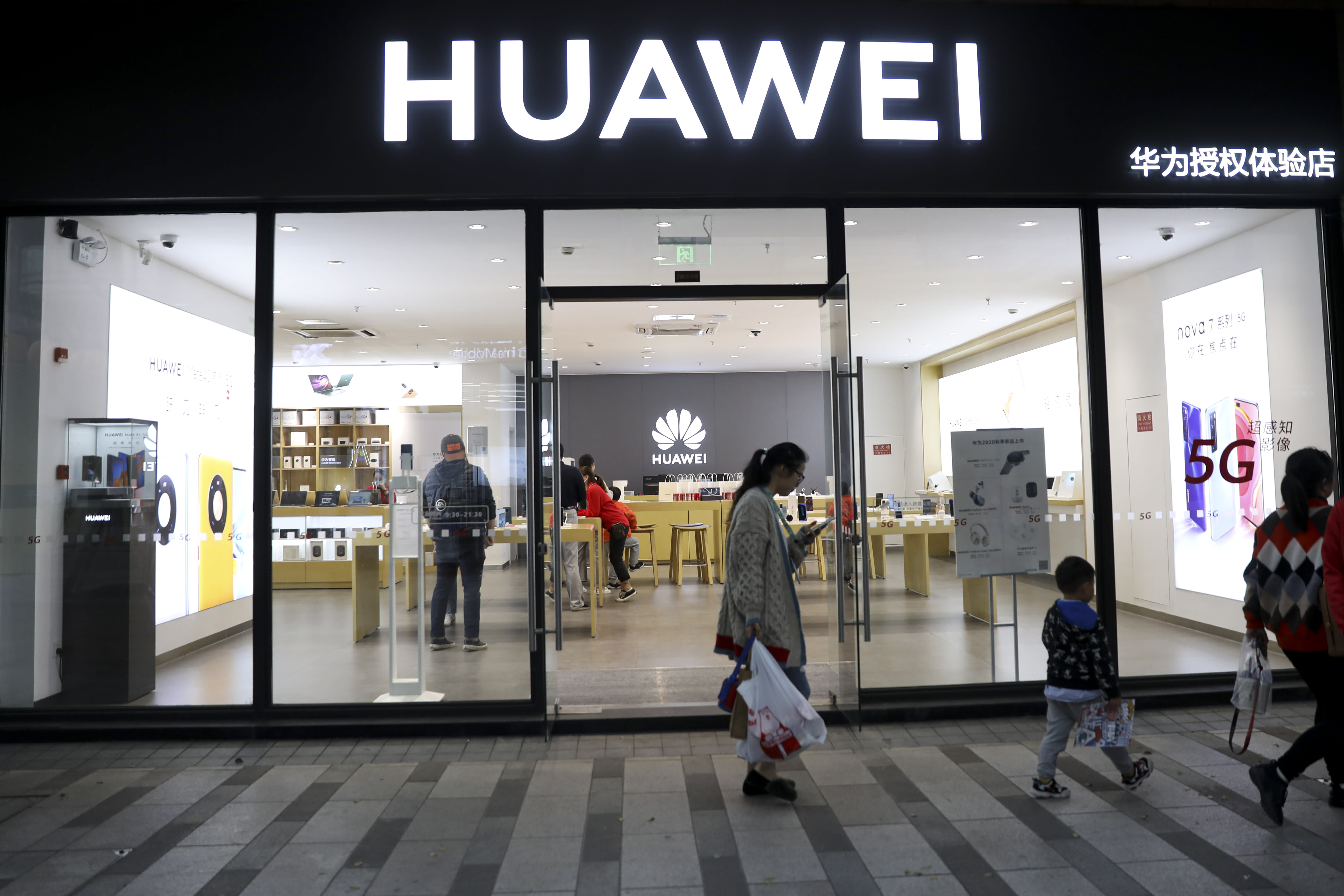Huawei launches smartphone overseas despite U.S. sanctions crippling its mobile phone business

Customers at a Huawei licensed experience store shop for devices on October 30, 2020 in Suzhou, China.
Fred Lee | Getty Images News | Getty Images
GUANGZHOU, China — Huawei launched its mid-range Nova 9 smartphone overseas for the first time on Thursday, starting in Europe.
The Chinese smartphone giant’s business overseas has been crippled since U.S. sanctions were imposed. But it hasn’t stopped Huawei from launching its phones in international markets.
The Nova 9 is a 4G device that has some features expected from higher end phones. That includes a four-camera setup with a wide-angle lens and software to help with taking pictures. It boasts a 6.57-inch display and fast charging technology.
Huawei developed its own operating system called HarmonyOS, and launched it after U.S. sanctions prevented the Chinese firm from using Google’s Android operating system, used by rivals like Samsung.
However, the Nova 9 will not be running on HarmonyOS, but on EMUI 12 — an Android-based operating system developed by Huawei. The handset will not have any Google services installed on it due to the U.S. restrictions.
It’s going to be … challenging in many key premium Western European markets which are rising fast on the 5G adoption curve.
Neil Shah
research director, Counterpoint Research
Nova 9’s China launch
The Nova 9 was launched in China earlier this year. This is the first time it will be available in international markets, starting with Europe.
U.S. actions against Huawei, which was once the world’s number one smartphone player, has hurt its mobile business badly.
In Europe, Huawei’s market share has gone from 13.4% in the second quarter of 2019 to 0.3% in the same period this year, according to Counterpoint Research.
Without Google’s Android operating system, Huawei cannot offer the apps that consumers in international markets are used to.
Huawei’s own app store is missing some big name apps. The lack of the marquee apps is “still a deal-breaker for many users,” according to Neil Shah, research director at Counterpoint Research.
The Nova 9 is also not equipped with 5G connectivity, which refers to next-generation mobile networks that promise faster download speeds.
“It’s going to be … challenging in many key premium Western European markets which are rising fast on the 5G adoption curve and 5G capability has become a de-facto feature for any device above $250 level,” Shah said.
The analyst said the device has a 6-12 month window in some central and eastern European markets where 5G adoption is still lagging.
Huawei’s operating system
Huawei said its HarmonyOS system now has 120 million users, up from around 100 million in September.
HarmonyOS is an operating system that Huawei claims can work across a number of devices, not just smartphones. That means apps can transfer across smartwatches, TVs and even cars.
Huawei also makes other devices, including smartwatches and laptops. Smartphones are a part of the company’s strategy to offer different devices using HarmonyOS, which could increase users and ultimately appeal to developers.
It’s also part of a broader push by Huawei to increase revenue from software as parts of its hardware business struggle.